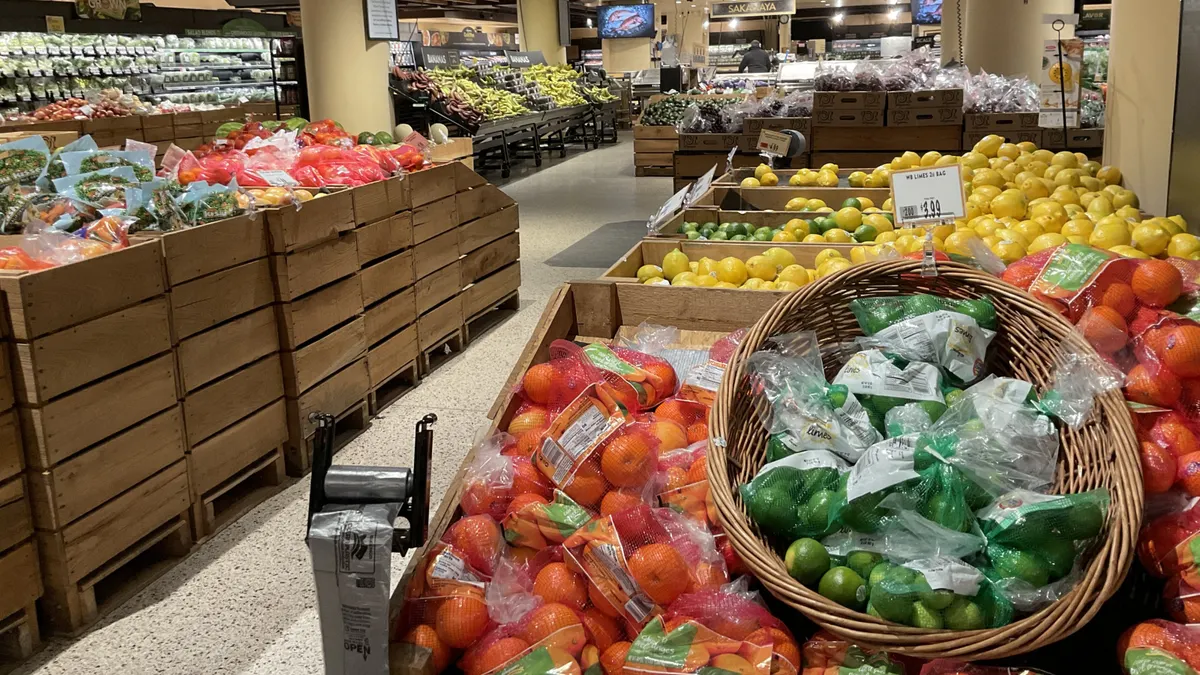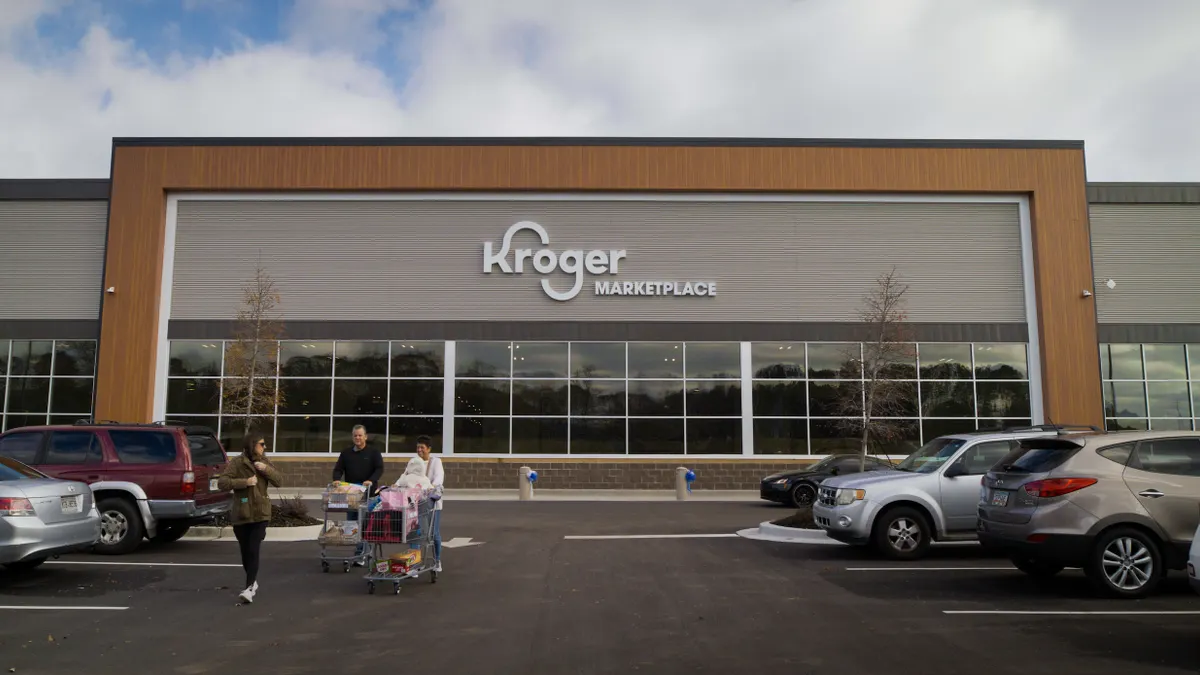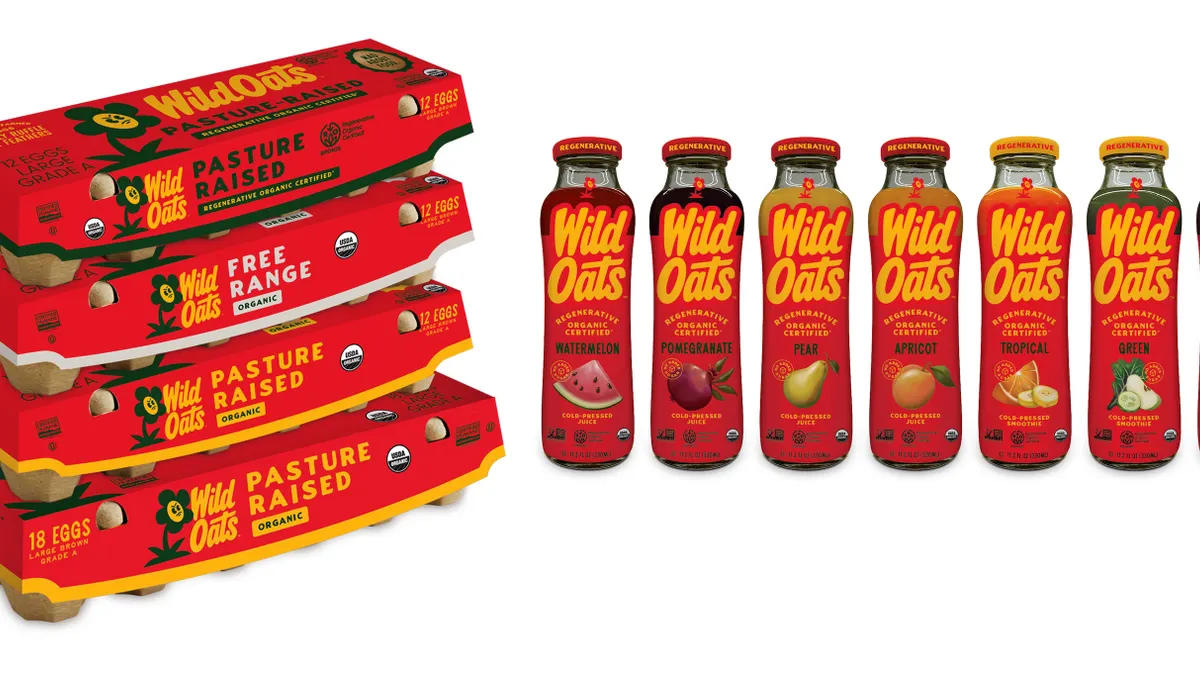Leslie G. Sarasin is the president and CEO of FMI — The Food Industry Association, a trade association advocating for a safer, healthier and more efficient consumer food supply chain.
Whether it’s a holiday feast, an intimate event celebration, an outdoor cookout or simple comfort food at the end of a long day, food is personal and is the world’s oldest bonding agent. It brings family, friends and neighbors together in ways that build community and foster relationships.
At FMI – The Food Industry Association, the organization I lead, we believe family meals are the foundation for healthy families, healthy communities and ultimately a healthy nation, which is why we created the Family Meals Movement, urging more families year-round to enjoy the multiple benefits of sharing meals with loved ones.
Multiple studies show that people who share meals consume more fruits and vegetables and generally have better diets, and because education starts at home, family meals provide a learning lab for establishing healthy eating habits. Eating meals with others also improves family connection, communication, expressiveness and problem-solving skills.

Food carries not just nutritional, but also emotional, mental and social benefits to consumers. Retailers and suppliers are responding to the expanding value mindset of shoppers by meeting them where they are with the convenience, entertainment, relevance and quality that they desire. The industry is also supporting local communities by providing enhanced private brand options, acting as neighborhood health-and-wellness hubs and engaging communities through volunteer and service initiatives.
Modern-day consumers have expanded how they define “value” when it comes to food shopping. To address these broadening preferences, the food industry has created destinations – not just stores. Retailers offer expanded fresh food selections, serve up both health and well-being products and services, and provide foodservice solutions alongside seamless omnichannel experiences. Consumers’ recognition of and appreciation for these efforts are evident as they reflect on their grocery shopping experiences. The U.S. Grocery Shopper Sentiment Index from FMI continues to show consumers have positive feelings about grocery shopping, even indicating that shoppers view it as a social activity ingrained in their community.
Another report from FMI, The Food Retailing Industry Speaks 2025, found that grocers and manufacturers are prioritizing business decisions that enhance customer value. The majority of suppliers are concentrating on product innovation and items with beneficial attributes for health and well-being, in addition to more generally placing a focus on nutrition, health and well-being. About half of the suppliers are also placing value on private brand co-packing, organic assortment and multicultural assortment and experience.
Largely aligning with these efforts, the majority of retailers sold local assortments, operated fresh prepared or foodservice programs and leveraged private brand programs. This is all while most wholesalers are focusing on better end-to-end collaboration with retailers, manufacturers and other wholesalers to best provide the value consumers are looking for. This whole-of-industry priority in providing fresh, nutritious and specialized options supports the balanced family meals that are central to a healthy nation.
In Speaks 2025, both retailers and suppliers cite consumers’ focus on nutrition, health and well-being as a primary factor in their operations. Retail health strategy is driving business as the food industry seeks to build health and well-being destinations that support shoppers with a wide range of grocery options and in-store registered dietitian nutritionists and pharmacies. FMI supports healthy communities, which start at the grocery store and at home.
Meeting consumers’ value mindset in 2024 included 79% of retailers and suppliers focusing on nutrition, health and well-being products. Almost half of retailers and some suppliers reported that these efforts carried high success rates. Even more retailers (82%) and suppliers (84%) offered products with beneficial nutrition attributes to reach the increased demand from shoppers for health-and-wellness-related items. Half of the surveyed grocers and some manufacturers reported that these efforts were highly successful. In addition to specialized products, some retailers have reported success in employing nutrition, health and well-being programs as well.

The industry is focused on contributing to consumers’ value mindset, but these efforts do not end with the shoppers themselves. The food industry has never lost sight of the biggest picture: the communities we serve every day. Speaks 2025 found that 95% of suppliers and 81% of retailers currently participate in or run community outreach programs, with another 8% of retailers working to implement such efforts. A majority of grocers also cite community support and ties as an important effort for their companies with a 70% success rate.
Many of these programs address food insecurity or include neighborhood health improvement initiatives, including volunteer days, disaster relief donations, food drives and donations, nutrition education and resources and fresh food incentives for SNAP participants. These diverse programs have a wide-reaching impact for those in need – the food industry contributes almost half of all donations to food banks nationwide. The industry is highly committed to supporting food access and educational resources for communities in every corner of the country.
Community outreach programs showcase the food industry’s determination to deliver on consumer value put into action. Grocers and manufacturers are always looking for opportunities to add to the communities and shopping experiences of those they serve. This commitment goes far beyond what's good for business, because we know there is no replacement for bringing a family together over grandma’s famous recipe or sharing a plate with a neighbor.
This is the third and final installment of op-eds about FMI’s The Food Retailing Industry Speaks 2025 report. The previous pieces focused on tech and labor and macroeconomic issues.






















